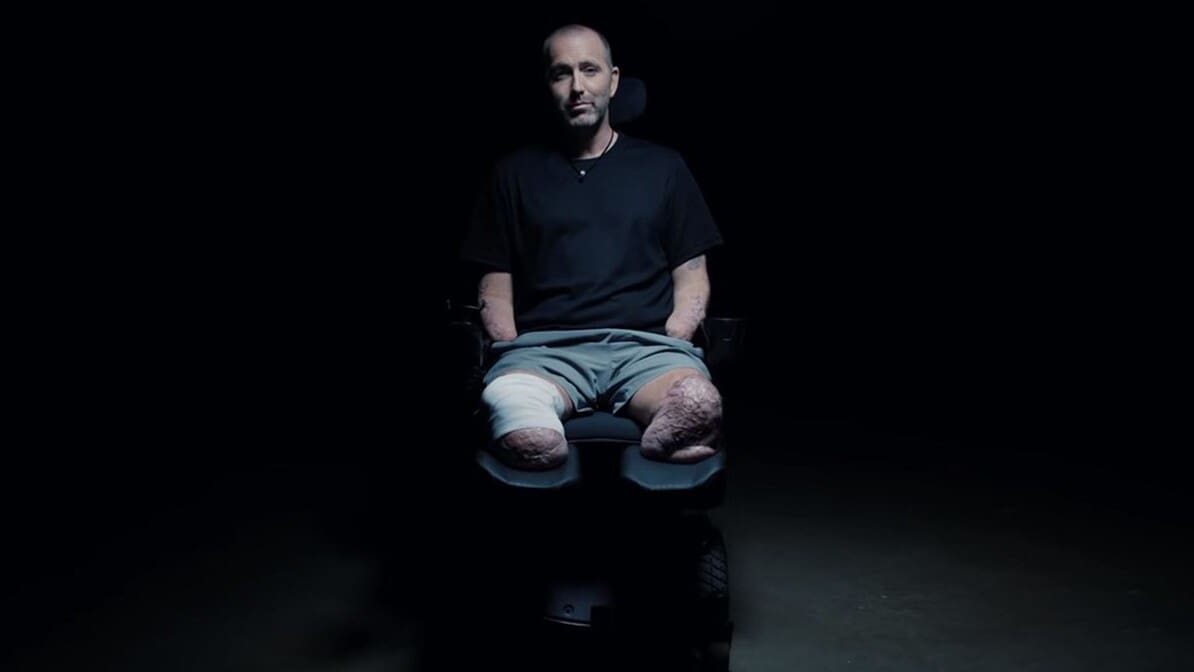
How to Deal with Old Wounds: A Biblical Perspective
“We forget: In life, it doesn’t matter what happens to you or where you came from. It matters what you do with what happens and what you’ve been given.” ― Ryan Holiday, The Obstacle Is the Way: The Timeless Art of Turning Trials into Triumph
Woundedness — Part of Our Life Journey
Every one of us has been injured by life. “How to Deal with Old Wounds: A Biblical Perspective” is the first of a three-part series to give you some tools to help you become more resilient as you work through life’s challenges with the Lord’s help.
Dealing with our woundedness is a skill we must master. Failure to do so could lead to a life of mental, emotional, and spiritual impairment.
At some point on our journey, we will experience woundedness, which will not be a one-time event. It may be the result of a relationship, a business failure, moral failure, combat, or our stupidity and lack of wisdom or preponderance of pride. I have made some dumb mistakes but have also been wounded in ministry. No matter how the wound occurred, self-inflicted or from an external source, it can be a time of trial. Still, it can also be a part of God’s refining process.
Woundedness is part of what it means to be a human. Life will wound all of us to one extent or another.
And there lies the problem. As we have become more isolated as a culture, many men may find it more challenging to deal with their woundedness. So let’s look at four reasons guys avoid dealing with old wounds.
Four Reasons Men Don’t Deal with Wounds
There are several reasons but in this article, I will focus on four common reasons that men struggle with their wounds.
First, culture has trained us to believe that real men don’t cry.
Second, masculinity is under pressure. Current cultural nuances and the innuendos of “toxic masculinity” in the media have scared our daughters and caused many young men to fail to embrace their masculinity.
Third, sadly, some men feel that church life is irrelevant to their needs.
Fourth, because many men don’t have a support system, many will bury their woundedness. The result is various addictive behaviors, drugs, gaming, sexual addictions, food, pleasure, drinking, and even hyper-religious involvement. For many men, if this woundedness is not addressed, it will significantly negatively impact their lives and relationships.
The Bible and Trauma
An overview of Scripture reveals that trauma and trials are a normal part of being human.
God can use the pain to draw us into a deeper, more intimate relationship with Him. As we work through these issues, we will experience them. The Apostle Paul gives us a dose of hope in 2 Corinthians 1:3-4 NLT:
All praise to God, the Father of our Lord Jesus Christ.
God is our merciful Father and the source of all comfort.
He comforts us in all our troubles so that we can comfort others.
When they are troubled, we can give them
the same comfort God has given us.
Wrestling with God
Jacob, the Old Testament Patriarch, had some serious issues. Reviewing his story in the book of Genesis, we see deep-seated family bitterness and resentment. In addition, he was a ruthless, determined man who was also a conman and a liar. His name means “deceiver,” and if you dig a little deeper, his name means “grabber.”
Scripture reveals that Jacob’s life was one of constant struggle. While God had promised him, he would be the Father of a company of nations, and he was a guy who dealt with a lot of fear and anxiety.
The Back Story
There is a tipping point in Jacobs’s life. Things were coming to a head. He was about to meet his brother Esau, and he was fearful of the outcome. Earlier in their lives, Jacob deceived their dad, and, pretending to be Esau, he stole his brother’s blessing (Genesis 27:1-28:7).
Jacob hopes he won’t be killed when he meets up with Esau. So, he bribes his brother by sending a caravan of gifts along with the women and children of his household. The plan worked. Jacob was exhausted from all the worry and anxiety directly resulting from his lying, deceitful ways. He was “toast” and fell into a deep sleep.
Something was about to change.
Have you ever slept in a desert? I live in the Southwest and have spent a few nights in the desert.
Sleeping in the desert is a mystical and awe-inspiring experience. You can feel vulnerable and inspired.
A desert is a mysterious place. You feel so small compared to the grandeur of the night sky. The vastness of the desert, with its sparse and beautiful landscapes, makes you feel like you are in another world.
Some people sleep in the desert to reconnect with themselves or have some time away from everyday life. Others might seek spiritual enlightenment or peace they won’t find anywhere else.
In Jacob’s case, he was an exhausted desert dweller who did not know what a life-altering experience would be.
Running away from his less-than-stellar family history had been tough enough. Wrestling with the Lord was a life changer!
Here is the story from Genesis 32:24-30 NLT:
This situation left Jacob alone in the camp, and a man came and wrestled with him until the dawn began to break. When the man saw that he would not win the match, he touched Jacob’s hip and wrenched it out of its socket. Then the man said, “Let me go, for the dawn is breaking!”
But Jacob said, “I will not let you go unless you bless me.”
“What is your name?” the man asked.
He replied, “Jacob.”
“Your name will no longer be Jacob,” the man told him.
“From now on you will be called Israel because you have fought with God and with men and have won.”
“Please tell me your name,” Jacob said.
“Why do you want to know my name?” the man replied. Then he blessed Jacob there.
Jacob named the place Peniel (which means “face of God”), for he said, “I have seen God face to face, yet my life has been spared.”
As a result of this wound, Jacob’s life would be forever impacted. As a result, Jacob changed his name from deceiver to Israel.
In the Old Testament story, we can see elements of our woundedness and struggles: fear, loneliness, feeling like an imposter, and sometimes feeling exhausted and powerless. But we also see growth, hope, and transformation.
Applying the Ancient Principle to the 21st Century
Our American culture and churches celebrate wealth, prestige, power, strength, and confidence. And while many believers know a part of day-to-day living can leave us feeling vulnerable, depressed, anxious, and doubt-ridden, some see this as a sign of failure or a lack of faith, which is dead wrong! Yet, deep inside, you and I know that simple optimism and the glowing accolades of victory and success can still lead to discontentment and despair in real life. Sooner or later, life’s brutal, naked coldness will catch up with you. The story of Jacob is one of those enriching stories that can keep us living in reality.
The New Testament also gives us some perspective. Paul does not deny pain, failure, trauma, or misery. However, he points us to the promises provided in Scripture.
The Apostle Paul shares a couple of insights on the struggle.
2 Corinthians 7:5-6 NLT
“When we arrived in Macedonia, there was no rest for us. We faced conflict from every direction, with battles on the outside and fear on the inside.
But God, who encourages those who are discouraged, encouraged us by the arrival of Titus.”
He also reminds us that no matter what we face, God gives us the power, the will, and the insight to remain resilient in every situation.
Romans 8:38-39 NLT
“And I am convinced that nothing can separate us from God’s love. Neither death nor life, neither angels nor demons, neither our fears for today nor our worries about tomorrow—not even the powers of hell can separate us from God’s love. No power in the sky above or in the earth below—indeed, nothing in all creation will ever be able to separate us from the love of God revealed in Christ Jesus our Lord.”
Life can be challenging.
We all carry some woundedness. The worst thing we can do is manage it on our own.
So what can you do? Lean in.
While your current situation may be awful, you have accepted it as reality. As a result, you can take personal action to change it. It is not about being in denial or blame-shifting. It is not buying into the victim mentality. Instead, it is about getting off your duff and taking kinetic action to move forward.
So how can you do this? By stepping it up a notch!
We live in an incredible time. You can find help through podcasts, articles, face-to-face therapy, and online therapy. You can read, join a men’s group, talk to a pastor, pray, share with a trusted friend or a counselor, or find ways to serve others. So, there is help. But don’t fool yourself because you can’t be a Lone Ranger and get better. Finding help is better than binging on Netflix, overexposure to social media, drinking, drugging, isolating, or suicide.
Food for Thought
C.S. Lewis once wrote, “God whispers to us in our pleasures, speaks in our conscience, but shouts in our pains … [Pain] is His megaphone to rouse a deaf world”- C.S. Lewis, The Problem of Pain.
The Lord is more concerned with our character than our comfort; at times, He chooses to use calamity to refine us.
James 1:2-4 ESV
Count it all joy, my brothers, when you meet trials of various kinds, for you know that testing your faith produces steadfastness. And let steadfastness have its full effect, that you may be perfect and complete, lacking in nothing.
…
Originally published on John Thurman’s blog
Trending Now
Sign up today for your Inspiration Today Daily Newsletter
Supercharge your faith and ignite your spirit. Find hope in God’s word. Receive your Inspiration Today newsletter now!
John Thurman
John Thurman, M.Div., M.A., is a licensed counselor, work-life coach, and Christian author and speaker specializing in faith-based counseling and resiliency-centered coaching. With more than fifty years of experience in the helping profession, he has guided individuals and couples through emotional healing, life transitions, and spiritual growth.
John’s approach focuses on building resilience, cultivating inner strength, and helping people recover from adversity with wisdom and hope. He integrates the enduring truth of Scripture with evidence-based counseling techniques, offering a holistic model for mental, emotional, and spiritual well-being.
Through his counseling, writing, and speaking, John equips others with practical tools and a renewed mindset—empowering them to live healthier, more resilient lives grounded in faith.
Related Articles
January 28, 2026
I Just Knew It Was God: From Searching to Finding Faith
From the outside, Ekaterina’s life looked successful. She had a college degree, a strong career,…
January 26, 2026
How to Overcome Old Wounds with Resilience
How Do You Deal with Old Wounds? Everyone is talking about trauma, but very few are talking about…
November 21, 2025
Thank You … Lord
Gratitude transforms our lives and draws us closer to God. This article explores how practicing…
October 27, 2025
So, Is God Good?
Many people wrestle with the question, is God good, especially when life brings pain and loss.…
Next Steps To Strengthen Your Walk
Inspiration Today Newsletter
Supercharge your faith and ignite your spirit. Find hope in God’s word. Receive your Inspiration Today newsletter now!
Christian Articles
Find articles to strengthen your walk and grow your faith. We have a wide range of topics and authors for you.
Submit A Prayer Request
We are here for you. Simply click on the button below to reach us by form, email or phone. Together we will lift our hearts and voices with you in prayer.





